
'Distancing in daily life' amid COVID-19 pandemic
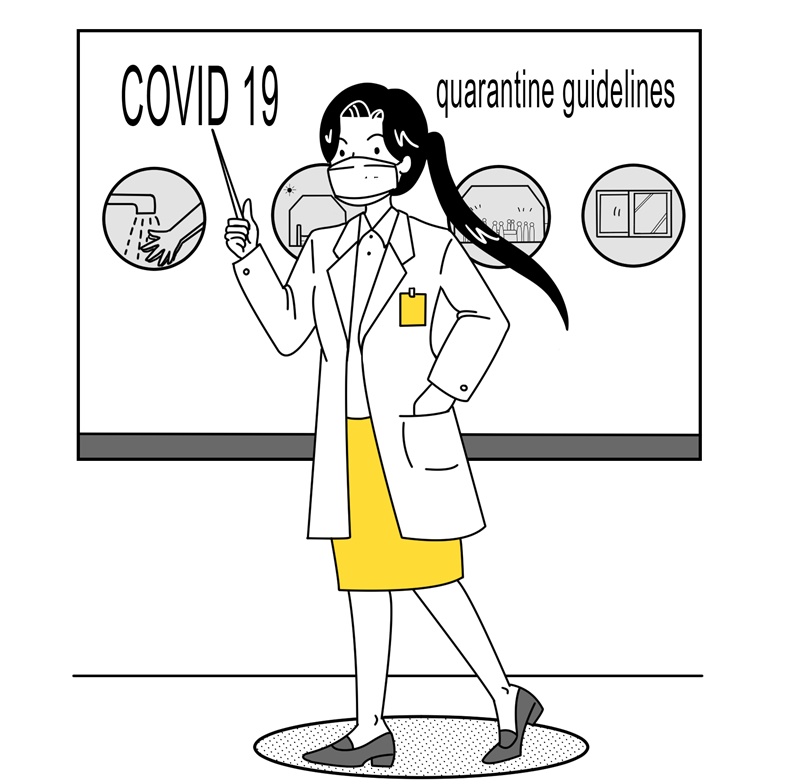
|
Amid the coronavirus pandemic, Su-hyeon explains to her foreign friends in Korea lifestyle quarantine guidelines to follow for preventing infection. |
Pedro: Our daily lives are changing so much because of the novel coronavirus disease (COVID-19). Many media outlets say it's hard to go back to life before the pandemic.
Jessie: I know. They say the world will be divided into the pre- and post-COVID-19 eras.
Huong: Social distancing in Korea is over, but we still have to follow new lifestyle guidelines to prevent the disease.
Su-hyeon: That's right. "Distancing in daily life," a lifestyle quarantine system that began on May 6, is exactly that. It has five individual, four supplementary and five group rules, as well as 31 specific rules depending on the circumstances.
Huong: Distancing in daily life? What's that?
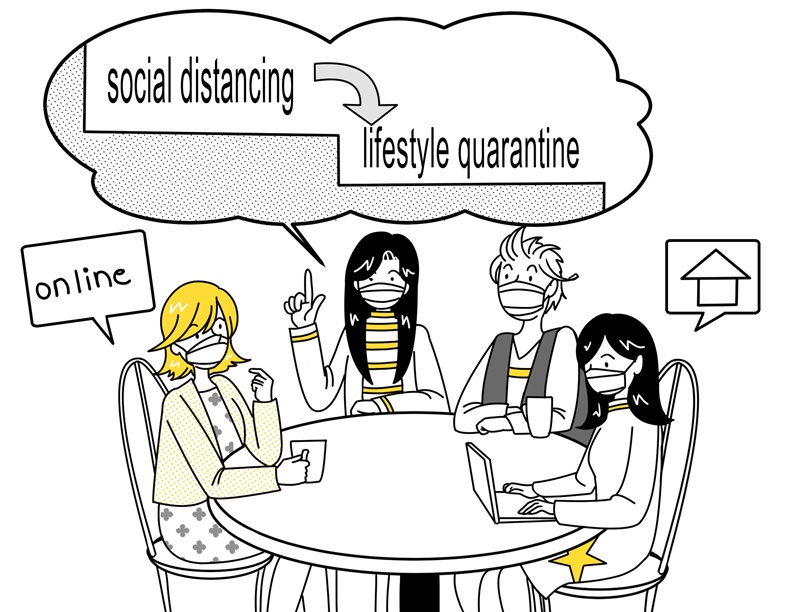
Su-hyeon: It balances daily and economic life while maintaining public safety. It's to prepare for COVID-19 being here for the long run.
Pedro: So it's a new lifestyle.
Su-hyeon: Yes. For instance, there are new rules such as not directly sitting across another person when dining and eating food using your own dishes and utensils. Following are the key rules of distancing in daily life, so please remember them.
Jessie: Let me guess, they include washing hands frequently and covering your mouth when coughing or sneezing.
Su-hyeon: That's right. This is a fundamental step to prevent not only COVID-19 but also the flu, cholera and other diseases. Don't forget to wash your hands for 30 seconds or more or using a hand sanitizer before and after eating, when coming home after going out, and after blowing your nose, coughing or sneezing. And please cover your mouth with a tissue, handkerchief or the inner side of your sleeve when coughing or sneezing.
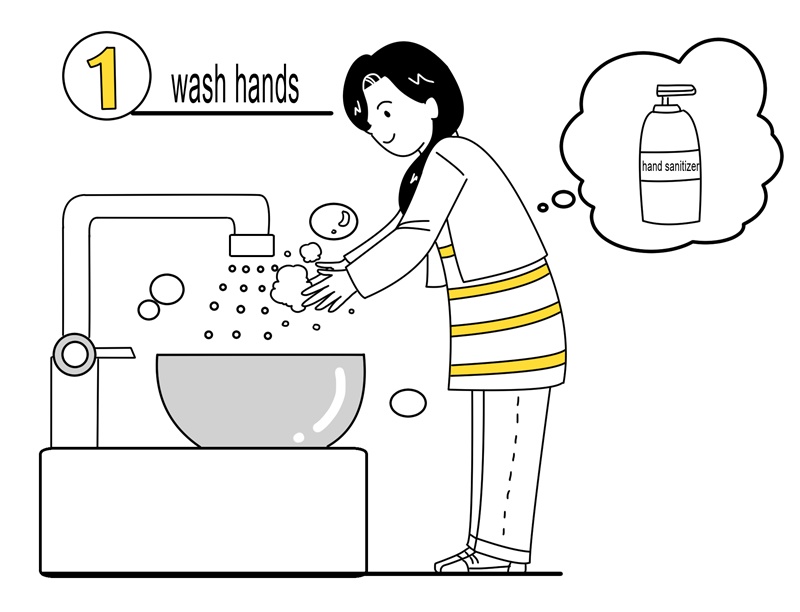
Huong: What else is there?
Su-hyeon: Second, stay home for three to four days if you're sick.
Huong: Do we have to stay home if we have just a slight fever and feel OK in going about our normal routine?
Su-hyeon: Yes. You can spread the coronavirus even if you have no COVID-19 symptoms or are in the early stage of the disease. The key is to minimize contact with others when you have a fever or respiratory symptoms. If you must go outside, wear a mask.
Jessie: What if I continue to be sick?
Su-hyeon: If your body temperature continues to exceed 38 degrees Celsius or your symptoms worsen, call the call center I told you about last time, get a consultation and follow the instructions. Do you remember the number?
Pedro: Yes, it was 1345.
Su-hyeon: That's right. Don't forget that number and that it's toll free.
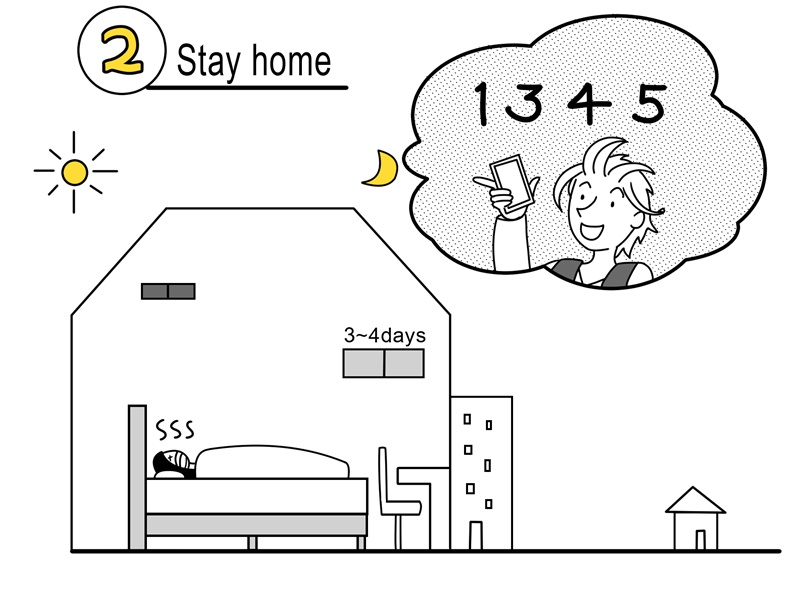
Huong: Su-hyeon, what other measures must we follow?
Su-hyeon: The third rule is maintenance of a distance of 2m or more between individuals. For instance, when making reservations for the train or an express bus, passengers must sit on every other seat. Also, wear a mask when using public transportation and refrain from talking. And when greeting someone, perform an elbow bump or bow your head instead of shaking hands or hugging.
Pedro: Sounds like these steps will be a great help in preventing COVID-19.
Su-hyeon: Wait, there's more. Ventilate your room twice or more a day and perform regular sanitization.
Jessie: I know why sanitization is important, but why ventilation?
Su-hyeon: Dropping the concentration of COVID-19-infected droplets in the air can reduce the possibility of contracting the coronavirus. It's better to keep the window open at all times and if that's hard, ventilate the room twice or more a day every day. Also, disinfect the things that you touch often at home, office and other daily spaces more than once a week such as telephones, straps and doorknobs.
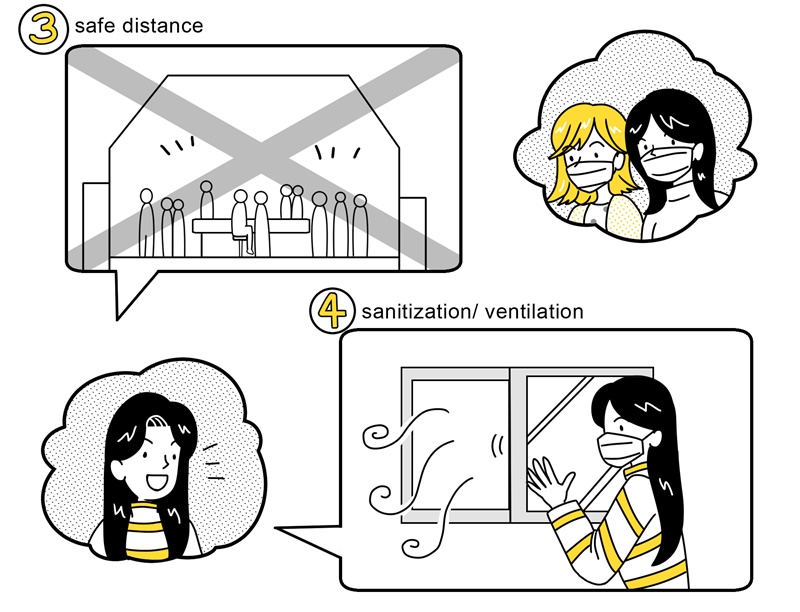
Huong: These are small steps but we must follow them. I'll remember them for sure. Thanks, Su-hyeon.
Su-hyeon: Yes. Overcoming COVID-19 requires the effort of not just one person but of everyone. Though we're physically apart, let's keep in touch often and remain emotionally close. This is another rule. Let's be considerate of others and hang in there a little more. So everyone, let's say it together.
Jessie, Pedro, Huong: Let's overcome together!
• Southwest Seoul Global Center: ☎ 02-2229-4900 (for foreigners who wish to report COVID-19 infection; consultation available in English, Chinese, Vietnamese, Filipino, Urdu, Nepali, Mongolian and Uzbek)
Written by Kim Young Deok
Translated by Lee Jihae
Illustrated by Yuhaill
kyd1991@korea.kr